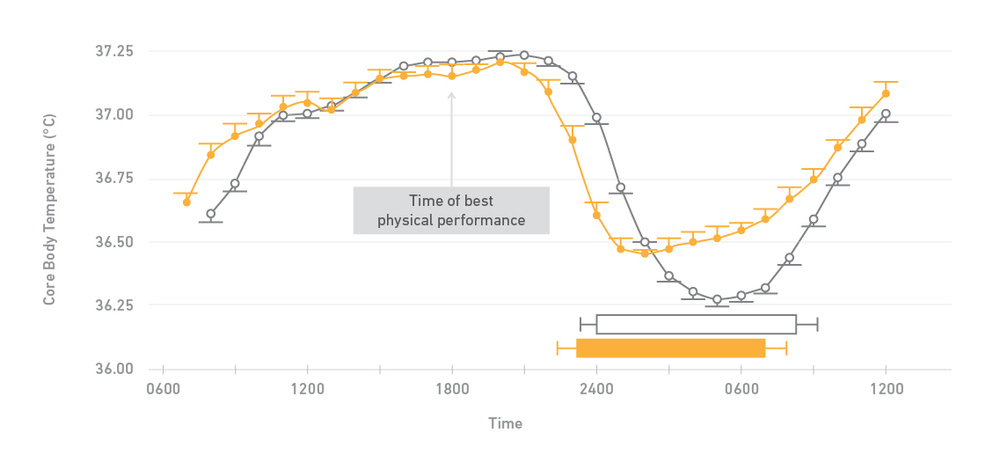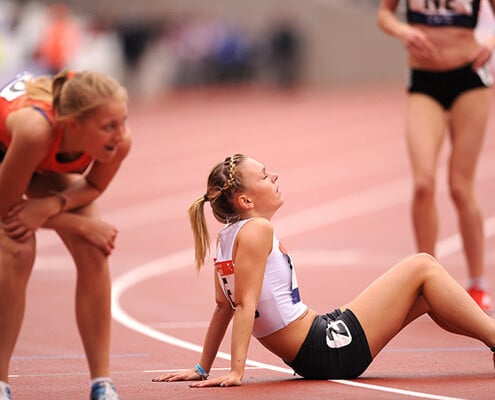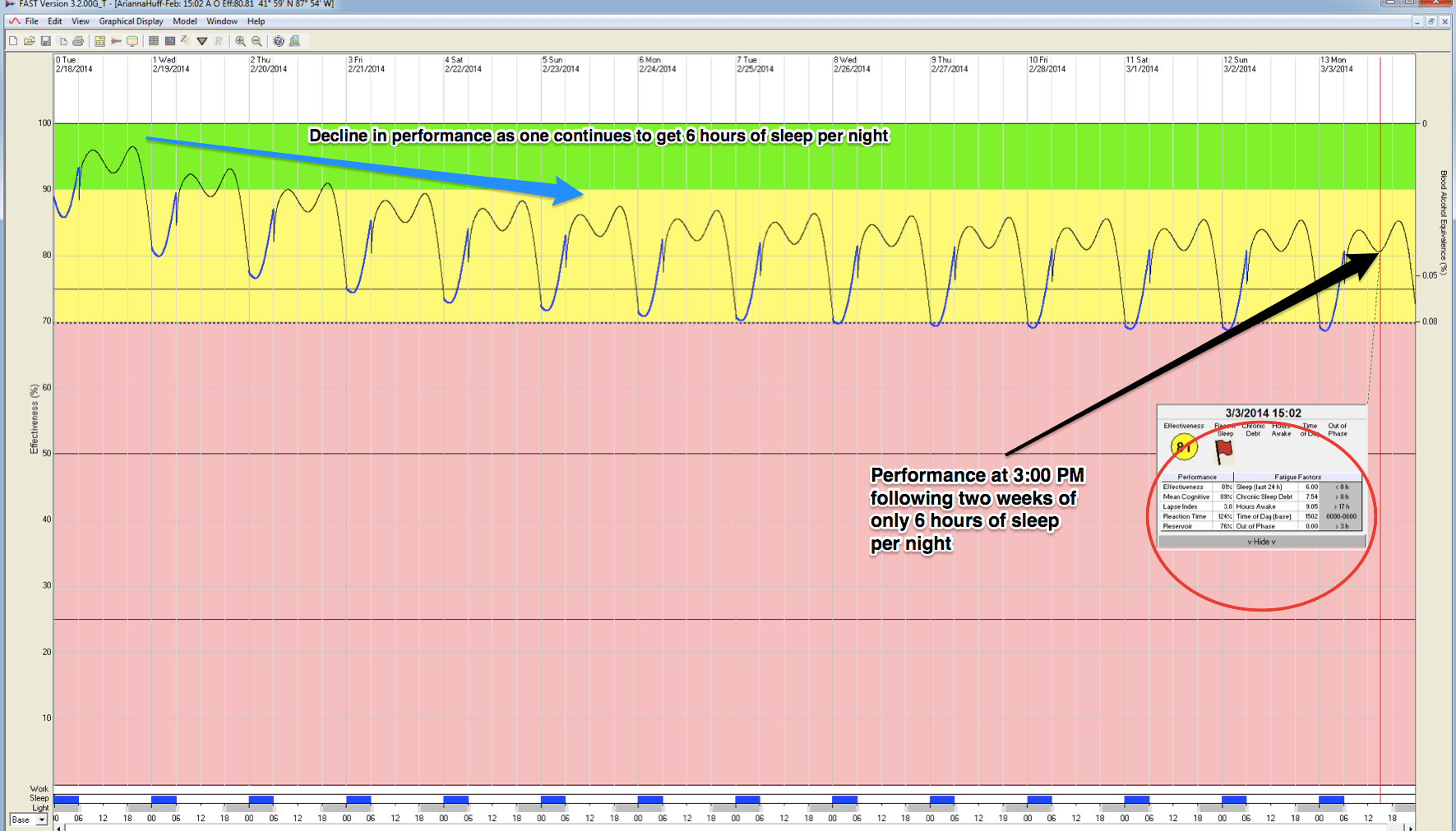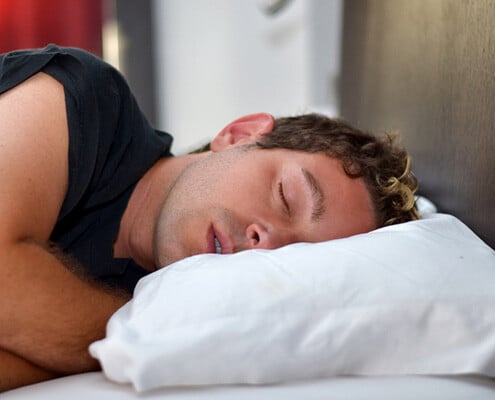Today, professional athletes are frequent flyers. And, rapid time-zone changes can pose serious challenges to their competitive edge. This 3-part series introduces strategies to combat the effects of jet lag on pro athletes.
Jet lag defined
Humans have a number of internal physiological processes that are normally tuned to a well-synchronized 24-hour rhythm that’s regulated by the timing of sunlight exposure. When your schedule is consistent, in terms of morning wake ups, daytime activity, and nightly bedtimes, your body’s time and the environmental time are closely aligned, and thus your body’s rhythms are in harmony. Whenever 3 or more time zones are crossed, however, disagreements between the body’s internal clock (your body’s sense of time) and the clock on the wall (the time cues in your new environment) can wreak havoc if not properly managed. Since this is a phenomenon made possible by modern airline transportation, it has been labeled “jet lag.” In addition to changing time zones, all the other hassles that accompany traveling by air (check-in procedures, seating conditions, schedule delays, high altitudes, dry air, etc.), only make matters worse.
Jet lag symptoms
Typical symptoms of jet lag include sleep disruptions, altered mood, loss of appetite, stomach upset, disorientation, and generalized discomfort—all of which can be traced directly to desynchronization of the body’s internal rhythms. And of course, the more time zones crossed, the more severe the symptoms.
Fact or Fiction: The direction of travel makes a difference
Fact. Jet lag is much less of a problem after travelling in a westward direction than an eastward direction because it is always easier to shift the body to a later schedule than an earlier one. Think about it, people have little difficulty staying awake a little longer than usual (and sleeping in later than usual) on days off, and this is exactly what happens when traveling west where everything occurs later than in your home time zone. But in the case of eastward travel, forcing yourself to go to bed earlier rarely leads to actually falling asleep earlier than usual, and waking up at 3:00 or 4:00 in the morning is never fun. Heading eastward shifts everything ahead of schedule, and the body definitely doesn’t like this change. In both cases, however, the body’s clock resists any disruption, and thus it takes time to readjust: at least one day per time zone crossed.
Jet lag and the athlete
Athletes need to be aware of an additional jet lag factor that can especially interfere with their performance: timing misalignment. On top of the “internal body-clock desynchronization” described above, a misalignment between body-clock time and local-clock performance time can create problems even when jet lag symptoms are minimal. Such is often the case when only 3 time zones are crossed.
There’s a rhythm to sports performance that favours late-afternoons and early evenings, and moving the competition away from these times (according to the body’s internal clock) can lead to unfavourable results. This explains why west coast teams have an advantage when playing nighttime games on the east coast. A 9:00pm game in the east occurs at the west coast team’s body-clock time of only 6:00pm, which is a time of day when athletic performance is enhanced. In an article on circadian rhythms, athletic performance and jet lag, Dr. Roberto Manfredini and his team cite considerable evidence that sports performance peaks around 1600 to 2000 hours when reaction time is faster, grip and back strength are stronger, flexion is greater, exercise endurance is longer, and the perception of physical exertion is lower than it is earlier in the day. In addition, there’s typically less joint stiffness and reduced pain perception in the early evening than in the morning.
Of course not every type of performance is best later in the day peaks in the evening. While reaction time tends to be faster at the timing of peak physical capability, Accuracy, at least on some tasks, is worse than it is better earlier in the day. Thus, it is suggested that earlier times of day may be better for sports that demand accuracy and implementation of competitive strategies, and for the delivery and recall of coaching instructions. However, in general, physical performance is better when body temperature is relatively high versus low, and this happens in the early evening according to the body’s internal clock.

Figure 1. From Duffy JF et al (1998) Core (rectal) body temperatures for young and older subjects. Solid orange circles = older subjects; open grey circles = younger subjects; Solid bar = usual sleep episode of older subjects; open bar = usual sleep episode of young subjects.
Traveling can be adversarial for athletes due to:
- trip-related fatigue and stress
- time-zone related desynchronization of the body’s internal rhythms, and
- time-zone related misalignment between the body’s peak capabilities and the local timing of performance requirements.
The bad news is that there’s no “magic bullet” that can wipe away these problems. The good news is that there are science-based strategies to mitigate their effects.
References
Smith RS, Guilleminault C, and Efron B (1997). Circadian rhythms and enhanced athletic performance in the National Football League
Manfredini R, Manfredini F, Fersini C, and Conconi F (1998). Circadian rhythms, athletic performance, and jet lag
Duffy JF, Dijk DJ, Hall EF, and Czeisler CA (1999). Relationship of endogenous circadian melatonin and temperature rhythms to self-reported preference for morning or evening activity in young and older people



